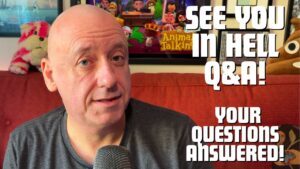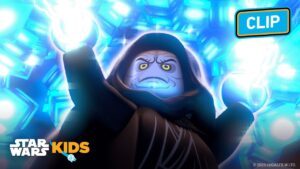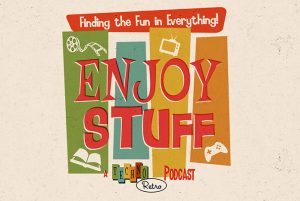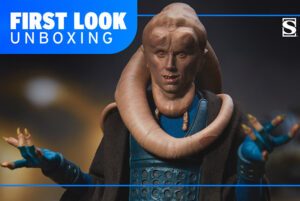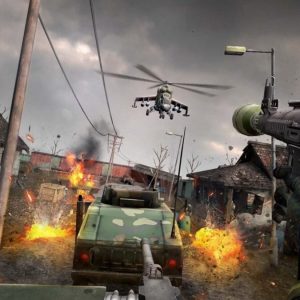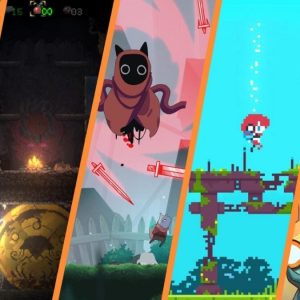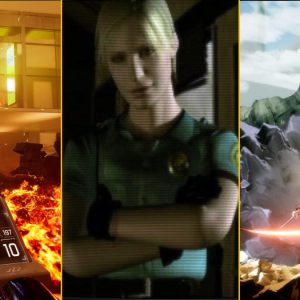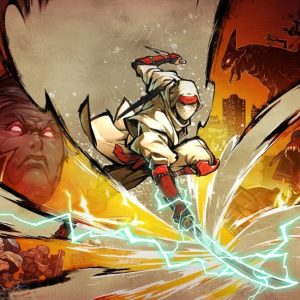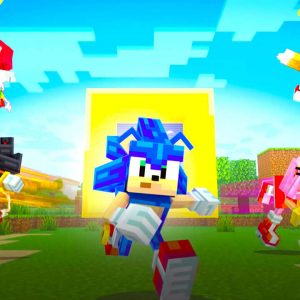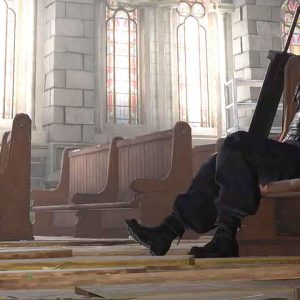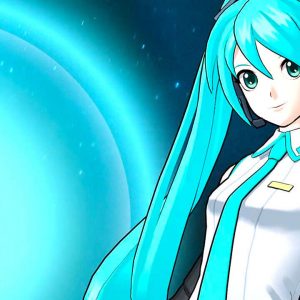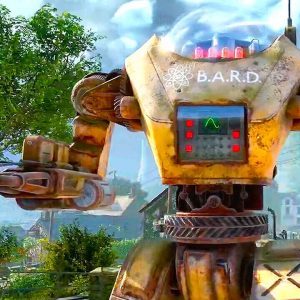Ubisoft has once again partnered with actor Joseph Gordon-Levitt’s production company, HitRecord, to produce in-game materials, all made by HitRecord community members, this time for Watch Dogs: Legion. The renewed partnership has again raised the ire of game developers and others on social media who criticize the process as potentially exploitative “speculative work.”
Specifically, Ubisoft and HitRecord have organized to commission 10 new songs for Watch Dogs: Legion. In a video posted to HitRecord’s YouTube channel, Watch Dogs: Legion creative director Clint Hocking, audio director Richie Nieto, and HitRecord founder and director Gordon-Levitt describe the partnership as an opportunity to reflect the game’s emphasis on collaboration between characters through the open world’s music.
“The core innovation in Watch Dogs: Legion is that you can recruit and play as anyone, and bring them into your resistance, and they can become the heroes of your game” Hocking says. “When we first started thinking about that as sort of the theme, that’s when we had this idea that maybe we should work with fans, and the community, and other players in order to add value, and reflect that theme in the musical landscape of our world. That’s why we went to HitRecord.”
HitRecord operates by essentially creating a project page (in this case, one has been made for Watch Dogs: Legion), and then members of HitRecord’s community (really, anyone on the internet who knows of HitRecord) are able to sign up to contribute to the project. Contributors span a wide gamut. Some might record large portions of a song, while others might add an additional layer of music, or remix it, or sing vocals. HitRecord then selects what work it wants to use from this pool of contributors, and pays them according to how much work they put in.
Each of the songs that HitRecord commissions and sends to Ubisoft will receive a $2,000 payment, split between each contributing artist. As with every HitRecord project, how that pay is split up will be posted online for all to see, and contributors have two weeks to voice concerns about how much they’re being paid, although a final decision is still up to HitRecord. More details on how payment will work on Watch Dogs Legion can be found in a video posted by HitRecord.
Anyone whose work was not chosen to be used receives no payment.

HitRecord and Ubisoft previously partnered up on Beyond Good & Evil 2, with community members ostensibly designing artwork, posters, and music that will be found around the game’s world. HitRecord as a whole has collaborated on books, shows, films, commercials, and more.
This partnership, plus Ubisoft and HitRecord’s previous work on Beyond Good & Evil 2, has raised concerns from the game development community, some of whom call the process exploitative. Some Twitter users have used the hashtag #nospec, which means “no speculative work.”
The American Institute of Graphic Arts describes “spec work” as “work done for free in the hopes of getting paid for it” or “work done in the hope of winning a prize, in whatever form that might take,” but concedes that unpaid work may take a variety of forms, and is ultimately a decision between employer and a worker who must be aware of the risks.
“This sucks. Pay people for their labour,” said Mike Bithell, developer of John Wick Hex, Subsurface Circular, Thomas Was Alone, and others. “Stop exploiting fans and hobbyists, while devaluing the work of those with the gall to actually expect consistent payment for work done. Do better Ubi, we’re counting on you. #nospec. Suggested better approach: Do an open call for submissions of existing work from aspiring musicians. Invest in a proper review process. Commission those whose work fits and pay them to produce work, you know, like you would with any other worker.”

Bithell went on to point out that, legally, he could not ask a unionized professional actor like Gordon-Levitt to work on the assumption that he would only be paid if he liked his work over 100 other actors.
Scott Benson, co-creator on Night in the Woods, tweeted that he wasn’t surprised Ubisoft was returning to HitRecord’s method of content creation.

“I am still not a fan of what read as “spec work under a proprietary open non-exclusive license” model, & prefer the “pay someone to browse SoundCloud to find cool music for which you then talk to the creator & pay them too,” said Rami Ismail, co-creator of indie studio Vlambeer.

IGN previously reported concerns from users on social media and the game development community about speculative work after HitRecord’s partnership with Ubisoft for BG&E2 was announced during E3 2018. At the time, Gordon-Levitt expressed regret over how HitRecord’s structure was communicated.
“Honestly, this concern was sorta painful to hear,” Gordon-Levitt wrote in a post on Medium shortly after Ubisoft’s E3 2018 presentation. “It’s not at all how I think of our community’s creative process. I do think that part of this disconnect is simple misinformation.”
According to Rock Paper Shotgun, $50,000 was set aside for payment on Beyond Good & Evil 2 contributors, but HitRecord’s website lists those payments as pending.
IGN has reached out to Ubisoft and HitRecord for comment, but did not immediately receive a reply. We will update this story with more information as it becomes available.
Joseph Knoop is a writer/producer for IGN.
